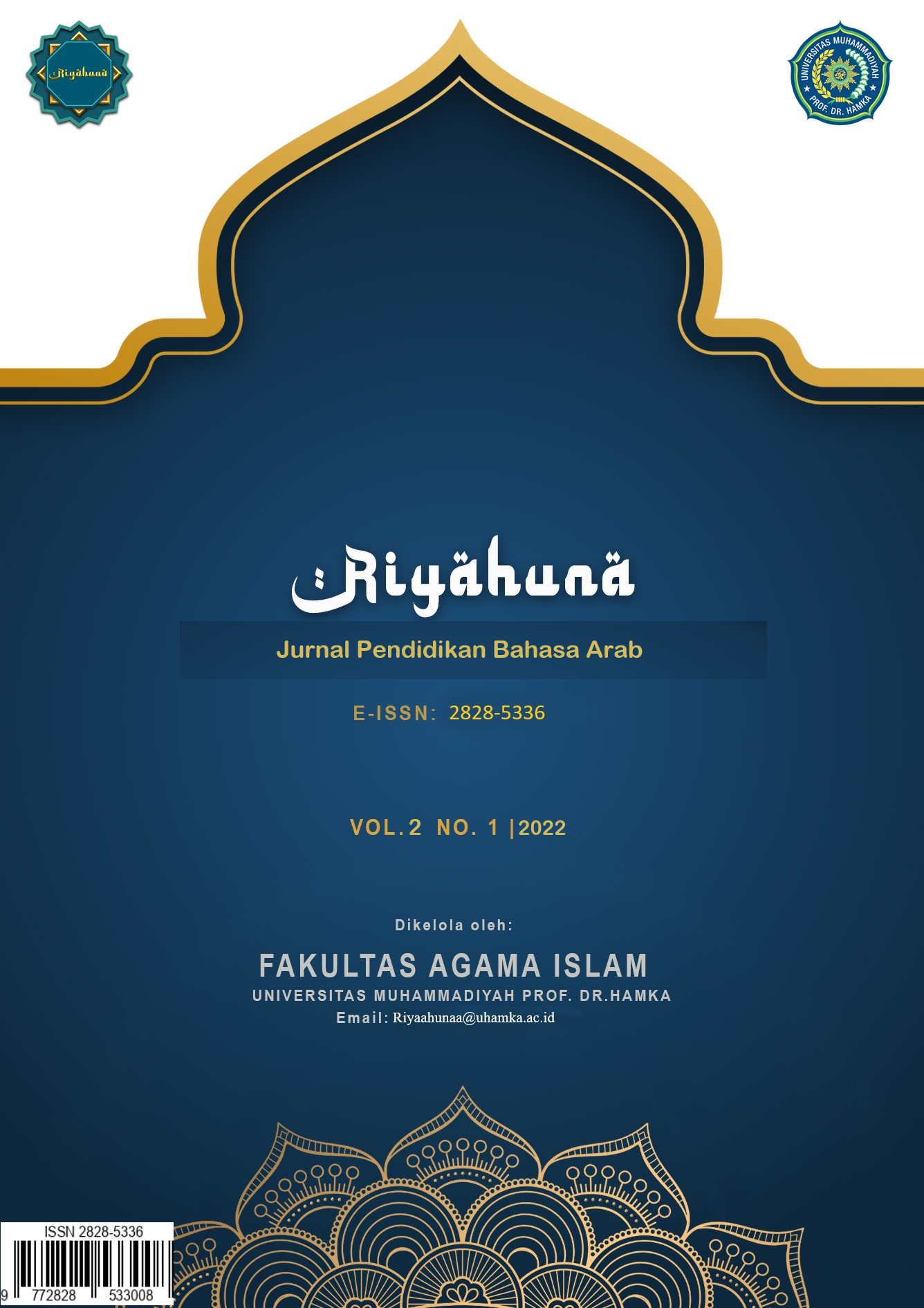Main Article Content
Abstract
Mind mapping is able to hone students' creativity because the way the brain works in an organized manner is simulated into the workings of a mind map that uses branches in tree branches. This study aims to determine the effectiveness of mind mapping media on qowa'id learning outcomes for MTsN 13 Jakarta students. The method used is an experimental method with the type of pretest-posttest control group design. Data collection techniques by giving pretest and posttest to students and using tests of validity, reliability, difficulty level of questions, and discriminating power. The hypothesis test used is the t-test and N-gain test to determine the level of effectiveness. The test results were obtained from the significance of (2-tailed) = 0.001 while α = 0.05, so that the significance of (2-tailed) < α, which means that H0 and H1 are accepted. Based on the data obtained, it proves that mind mapping media is effective for qowa'id learning outcomes for class VIII Islamic junior high school of 13 Jakarta

